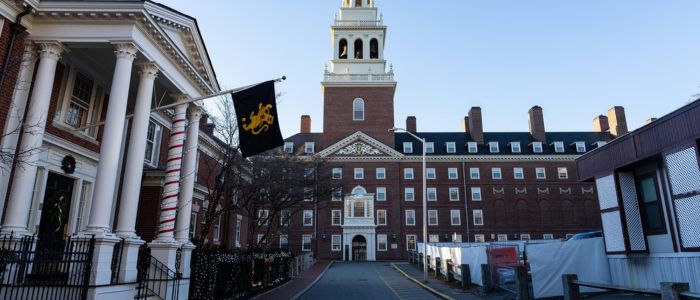Harvard has become a significant object of government scrutiny, with demands and accusations against it escalating —particularly after last year’s pro-Palestinian demonstrations prompted accusations that college officials ignored antisemitism on campus.
The federal government’s litany of complaints has grown, arriving in letters, public statements, and lawsuits. Some of the concerns parallel Harvard’s own agenda for reform, the university says, while it calls others unfounded or overblown. The administration’s actions have been welcomed by conservative groups who portray elite academic institutions like Harvard as centers of radical ideology and hostility toward Jews.
Billions in Federal Cash on the Line
The confrontation escalated on March 31, when federal officials informed Harvard that they would review all its contracts and grants, which amount to approximately $9 billion. It also reiterated freedom of choice for canceling any of these Treaties.
Later announcements promised cuts to or suspensions of almost every kind of federal grant or contract that is somehow linked to the university. Those steps led to a suspension of $2.2 billion in multiyear funding after Harvard refused to agree to the long list of conditions. The university sued in response on April 21.
Harvard says the government’s evolving, sprawling list of demands is sowing confusion and making it impossible to meaningfully respond. The question for institutions such as Harvard is simple, at least according to its federal complaint: allow the government to disrupt the university’s academic operations or lose the funding that it depends on for research and innovation.
Strangers Abroad and the Aftershocks of Oppression
Two days later, the Department of Homeland Security stepped it up even more, revoking Harvard’s certification within the Student and Exchange Visitor Program. This decision disallows international students to pursue their studies at the university. It is a privilege — not a right — for foreign students to attend colleges here,” wrote Kristi Noem, the secretary of homeland security, accusing institutions of leveraging their higher tuition payments to subsidize big endowments.
Alan Garber wondered about the wisdom of going after research funding that is not directly related to the issues raised. However, the university is still worried that the government is eroding the teaching, research, and public service missions. In the face of these growing challenges, Harvard remains steadfast in its defense of its independence and in its ongoing education and research efforts.












